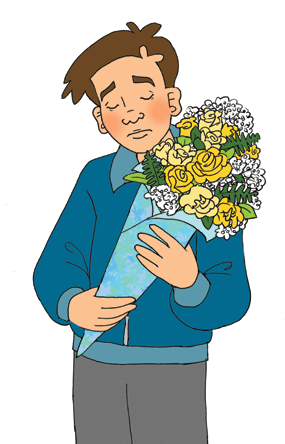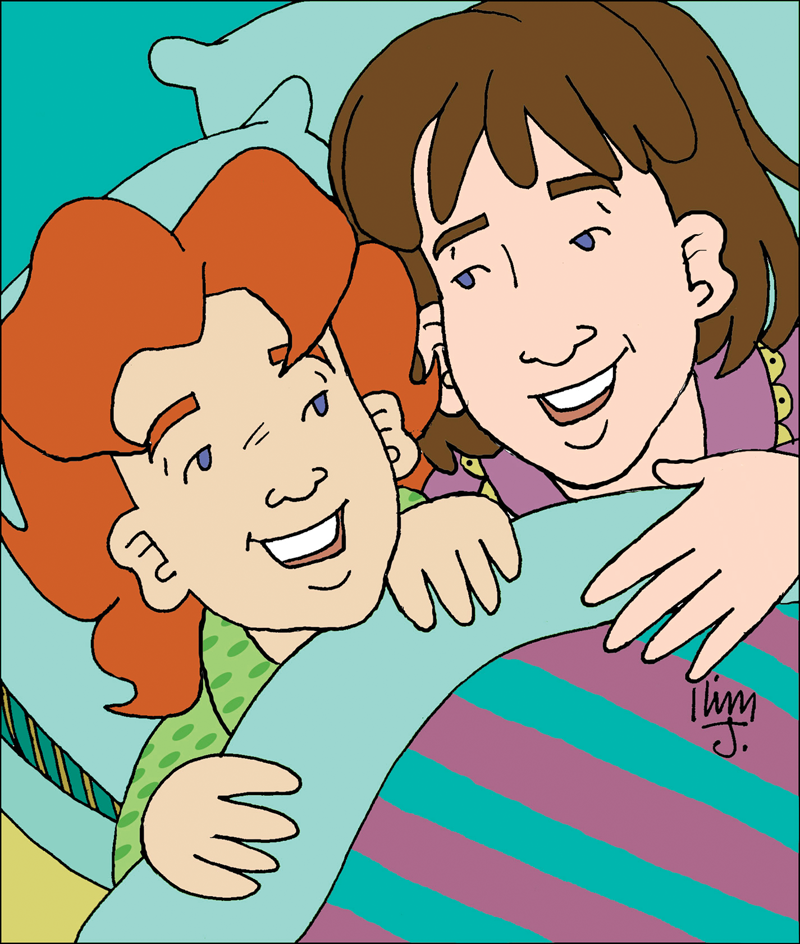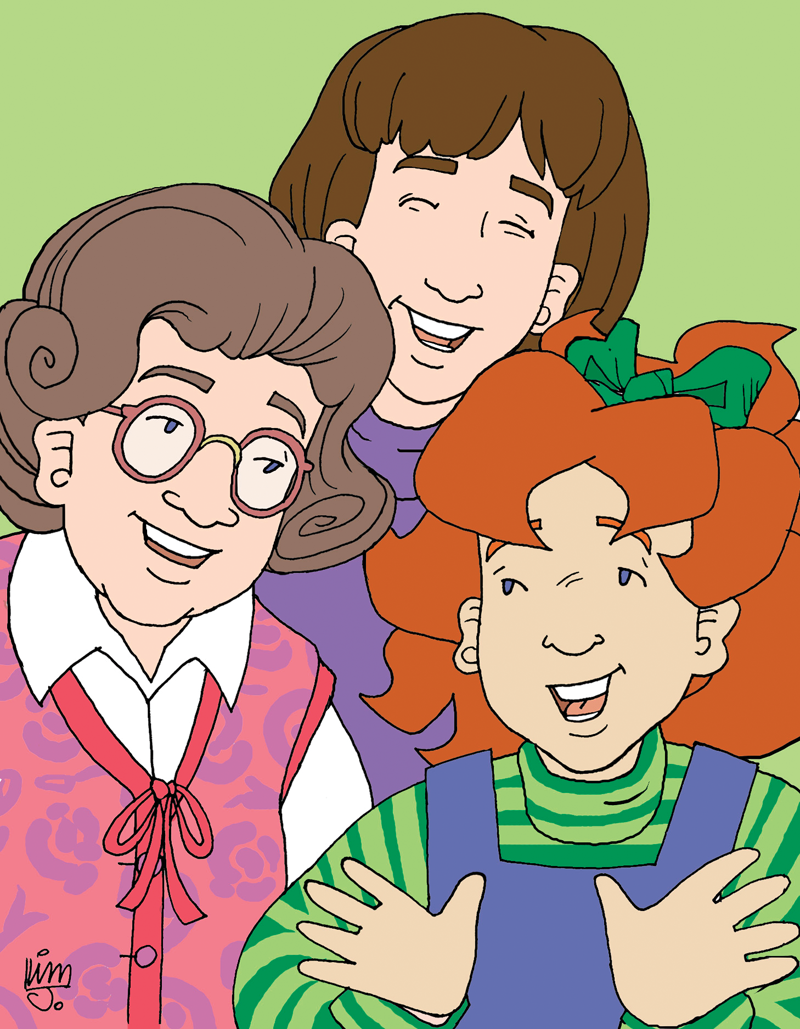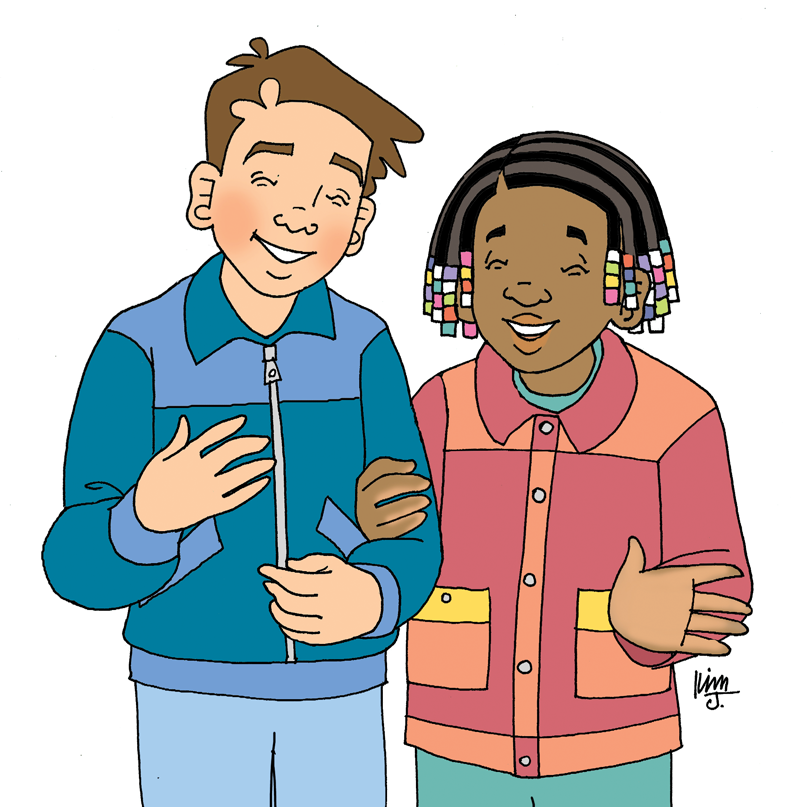
By Debbonnaire Kovacs
Michael Arthur Patterson rubbed his hands over the tombstone. It was rough and cold under his fingers, and he shivered a little. He ran his fingers down the front of the stone until he found the carved letters. ARTHUR. That was his grandfather’s first name. Mike traced the letters of the last name more quickly. PATTERSON. Below the name were two dates. Mike traced out November 5, 1950 – September 27, 1972.
“It seems funny, Dad.”
“What does?”
“To think of a grandpa who died when he was only twenty-two years old.”
“I guess it is kind of funny.” But Dad’s voice sounded sad, not amused.
It was Veteran’s Day. There had been a parade in town, and all the veterans had marched, some in their uniforms. Aunt Rose had described everything to Mike as well as she could. There were a number of young soldiers and sailors who had fought in the Middle East, and some family members marching for men and women who were still there. Some older ones had fought in Viet Nam, like Grandfather Patterson. Then there were a few who had fought in World War II and in Korea. Mike had been surprised to learn that Mr. Fontaine marched with them. Aunt Rose said she felt like crying when she saw. He was carrying a white rose, and he waved it at the Patterson family when he passed them.
“He’s remembering when Mrs. Fontaine used to watch the parade,” Mike said.
“He’s remembering when she waited at home for him while he fought in the war,” Dad added quietly. “That’s what they call this day in Canada, you know. Remembrance Day.”
“I like that,” Mike said.
Now they were in the graveyard, putting flowers on the grave of a father that Mike’s dad had never met. He had died in Viet Nam before Dad was born. Mike knew his dad always felt sad when they did this. He tried to imagine what it would be like to grow up without a father.
Instead, Mike was growing up without a mother. He could hardly remember Mom’s face anymore, but at least he had known her. Aunt Rose took his arm and he knew they were going to visit Mom’s grave next.
This granite was smoother. The letters were sharper in the stone, because it was newer. Mike traced the words “beloved wife and mother” and felt tears in his eyes. He could smell the roses Aunt Rose was putting in front of the stone. He knew they were yellow, Mom’s favorite color.
“I wish Jesus had raised Mom the way He raised the widow’s son,” Mike blurted suddenly. “The widow of Nain needed her son, but we need Mom too!”
Dad put his hand on Mike’s shoulder. “We have each other. She didn’t have anyone.”
“I know, but there are lots of other people who don’t have anyone. Look at Mr. Fontaine. God doesn’t do a miracle for them!”
“Sure He does. He does miracles every single day, for all of us. Mr. Fontaine included. He just doesn’t always do the one we want,” Dad explained.
“Usually, He does the ones we least expect,” Aunt Rose said with a little laugh. “That woman certainly didn’t expect to get her son back. People asked Jesus for things all the time when He was here. Some people only liked Him when He did what they wanted. ‘Feed us, heal us, help us!’ But the widow didn’t ask Jesus for anything. She might not have even known who He was. Imagine her face!”
Aunt Rose’s voice grew merry, and Mike found himself smiling. “I can see a hearse over in the other part of the cemetery, Mike. There’s a line of cars, and a group of sad people dressed in black. Just imagine what they would do if a strange, shabbily dressed man walked up and told them to open the coffin.”
“They’d call the police!” Mike laughed.
“And if they did open the coffin,” Dad took up the story, “and Jesus woke up the person inside, they’d faint! Most often today, Jesus does smaller, everyday miracles. Not even miracles, necessarily. Favors. When we least expect them. Like that sudden feeling of peace you told me you had when you gave your sermon to those people in the park and again at the fair.”
“Like giving me extra energy last week when I had three weddings and thought I was going to fall over from tiredness,” Aunt Rose said.
“Like working it out for the Washington kids to go to church school,” Mike added.
“Like sending Mr. Fontaine to be our friend,” Dad pointed out.
“Like giving us joy these five years, instead of the sadness we had,” Mike said softly, rubbing his hand over Mom’s tombstone again.
Dad put an arm around him. “Like making it possible for my mom—your grandma—to go to school and get a good job, so she could take care of Aunt Rose and me alone.”
Mike felt Aunt Rose’s arm come around his shoulders from the other side. “I’d like to be here when Jesus comes,” she said. Her voice sounded excited. “Just think—right up there in the sky, there will be a huge, brilliant white cloud, surrounded by millions of shining angels. And you’ll be able to see it all, Mike! Jesus will be sitting in the middle of the cloud, and His face will be glowing with joy. He’ll raise a trumpet to His lips, and we’ll hear a blast so loud it would make us deaf, if we weren’t being changed already. He’ll shout, ‘Wake up!’ and all over this graveyard, graves will pop open. Out will come our dad, just as young as when he died, and even stronger and more handsome. Out will come your mom, beautiful and healthy. Out will come that whole family over there that died in an accident. Angels will pick up the babies in that section of baby graves that I just can’t stand to see, and take them to their mothers.”
Aunt Rose sounded as if she were going to cry.
“Out will come Mary Fontaine,” Mike said. “And I’ll be able to see Mr. Fontaine’s face when he meets her.”
Dad’s arm tightened. “And he’ll be ready to meet her, because one of God’s unexpected favors to Mr. Fontaine was you, and your faithful friendship.”





